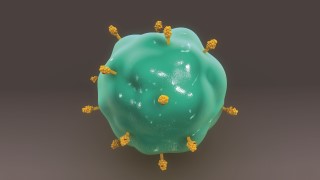 The study shows that in the case of MS, these cells are permanently “on”. They therefore promote inflammation and are more active, which sets off a chain reaction that ends up damaging the myelin of the central nervous system. With this observation in mind, researchers have looked at the over-activated dendritic cells of patients suffering from MS and have developed a process which consists of treating them in the lab through heavy doses of vitamin D, allowing the immune reactions to be adjusted.
The study shows that in the case of MS, these cells are permanently “on”. They therefore promote inflammation and are more active, which sets off a chain reaction that ends up damaging the myelin of the central nervous system. With this observation in mind, researchers have looked at the over-activated dendritic cells of patients suffering from MS and have developed a process which consists of treating them in the lab through heavy doses of vitamin D, allowing the immune reactions to be adjusted.“They consist of a specialised population of cells which activate and deactivate the immune system...These cellular modifications intervene directly at the root of the pathological processes that cause the illness. For auto-immune diseases such as MS, cell therapy can lead to a definite leap in treatments”, explains Nathalie Cools, assistant professor and 2017 Fonds Charcot laureate.
This “safety” clinical study, carried out in collaboration with Dr B. Willekens (UZA), is the first step in the development of a real treatment for patients living with MS. It will offer them a new future without further nervous system degradation. The researchers received “IWT-TBM project” financial support to conduct this clinical study. The industry is not yet investing in this type of clinical trial. The fundamental pre-clinical research which allowed this advance was financed by the Charcot Foundation. “This step of the research underlines the innovation and excellence of the work our Belgian researchers are providing, as well as the role of immunotherapy.”
